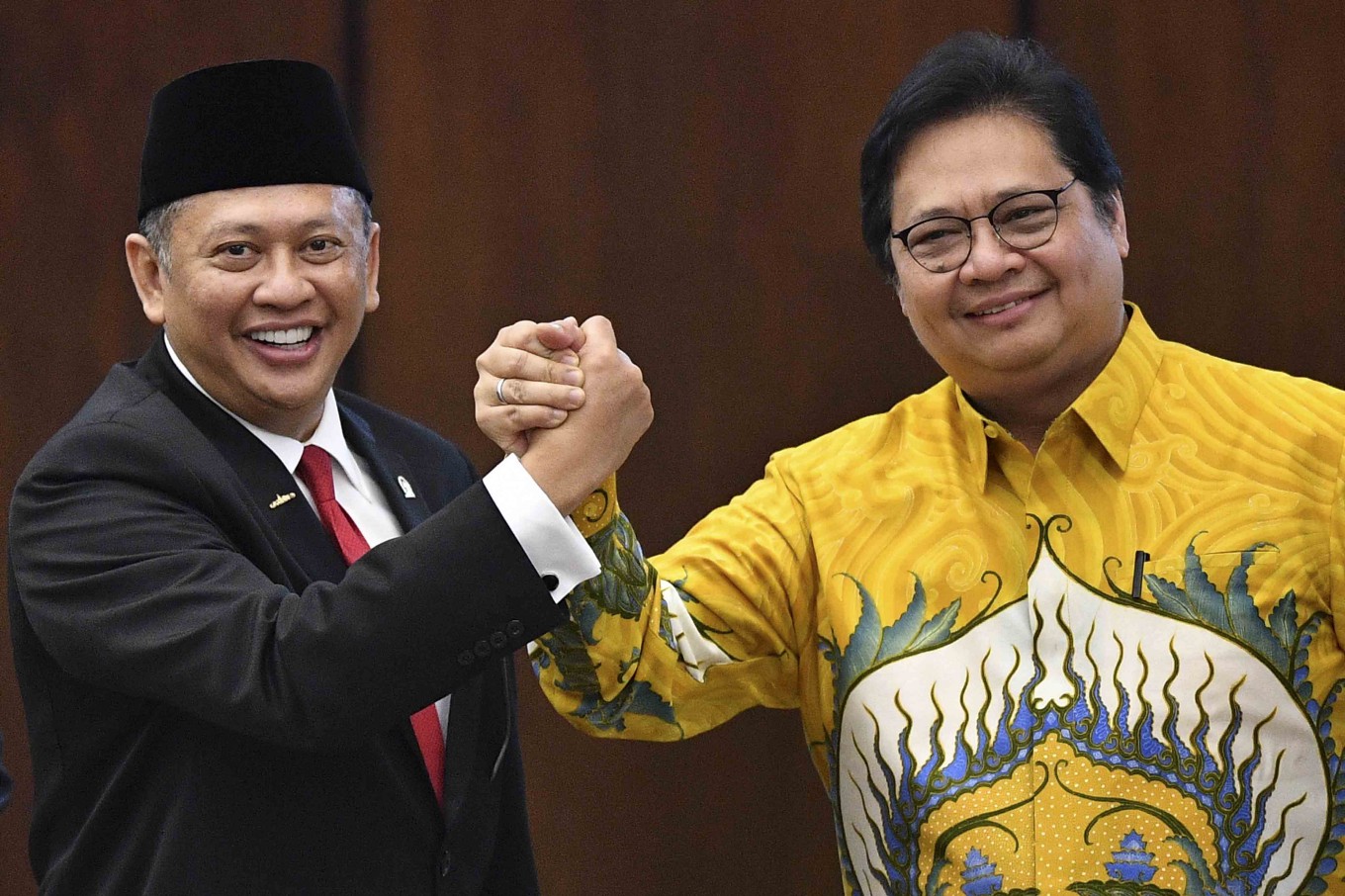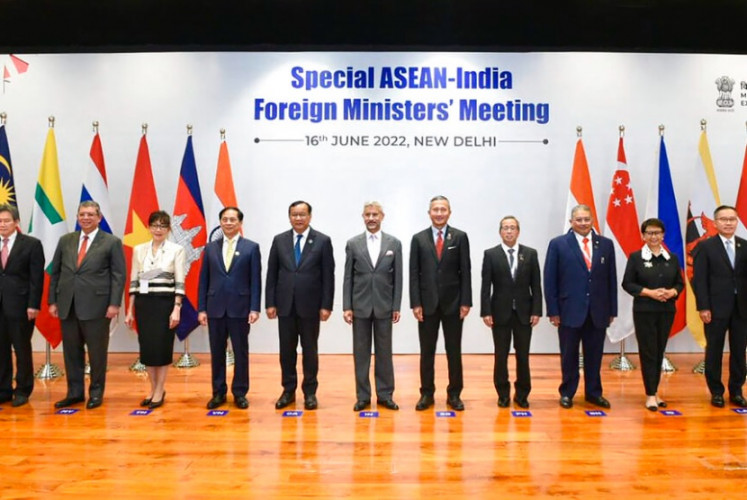Rubber stamp
Reports of the government’s interference in Golkar’s internal affairs had been rife, with Bambang’s loyalists accusing certain Cabinet members of pressuring Golkar regional leaders to support Airlangga.
 MPR Speaker Bambang Soesatyo (left) shakes hands with Golkar Party chairman Airlangga Hartarto after Bambang's inauguration as the People's Consultative Assembly (MPR) speaker at the House of Representatives complex in Senayan, Jakarta, on Oct. 3. ( ANTARA / Nova Wahyudi)
MPR Speaker Bambang Soesatyo (left) shakes hands with Golkar Party chairman Airlangga Hartarto after Bambang's inauguration as the People's Consultative Assembly (MPR) speaker at the House of Representatives complex in Senayan, Jakarta, on Oct. 3. ( ANTARA / Nova Wahyudi)
T
he battle for the chairmanship of the Golkar Party has proved to be something of an anticlimax following the withdrawal of People’s Consultative Assembly (MPR) Speaker Bambang Soesatyo from the race, allowing the incumbent, Airlangga Hartarto, to win reelection by acclamation. While Bambang’s graceful exit avoids Golkar enduring a potential schism that could beget unnecessary political distraction, the government’s blatant hand in the party’s internal affairs gives us cause for concern.
Bambang dropped his bid for the chairmanship post after he met with Coordinating Maritime Affairs and Investment Minister Luhut Pandjaitan and former Golkar chairman Aburizal Bakrie at Luhut’s office, a few hours before President Joko “Jokowi” Widodo opened the Golkar congress Wednesday.
Whatever the reasons behind Bambang’s decision and any deal reached between him and Luhut, also a senior Golkar politician, the meeting represented the government’s wish to steer the course of the much-anticipated contest. The fact that Luhut hosted the meeting at his office, which is state property, spoke volumes about the government’s intervention in the first place, which is why Vice President Ma’ruf Amin expressed his disappointment.
Reports of the government’s interference in Golkar’s internal affairs had been rife, with Bambang’s loyalists accusing certain Cabinet members of pressuring Golkar regional leaders to support Airlangga. Jokowi brushed off the allegations, saying Golkar was too big for outsiders to interfere in.
Jokowi’s preference for Airlangga as skipper of the second-largest party for the next five years indeed makes sense. Under Airlangga, Golkar broke sweat in helping Jokowi win his reelection and in a number of crucial issues, like the controversial plan to amend the Constitution and the drafting of much-vaunted omnibus laws, Airlangga has jumped to the President’s defense. With Airlangga at the helm, Golkar will provide Jokowi with confidence and comfort in realizing his campaign promises throughout his second and final presidential term.
On the other hand, Airlangga needed Jokowi’s blessing the most to retain the coveted post, which could pave the way for his nomination in the 2024 presidential election. As some political analysts have observed, the competition for Golkar’s top executive job has been defined by the President’s approval, money or a combination of both.
Formerly the political vehicle of the New Order regime, Golkar has hardly disengaged from the government. Only in the first year of Jokowi’s first term did Golkar unsuccessfully try to learn the ropes as an opposition party. For Golkar it seems the lure of power is difficult to resist, making it prone to government intervention.
Political parties are born to struggle for power, but only if they exercise their power for the good of the nation can they ensure their long-lasting relevance.
Unfortunately, for many Indonesian political parties power is the be-all and end-all, prompting them to justify any means to achieve their goal. Unsurprisingly they are perceived as corrupt institutions, with hundreds of politicians, including from Golkar, having been convicted for graft.
Golkar’s alliance with the government will ensure its share of power, but it may reduce the party’s role to that of a rubber stamp.








